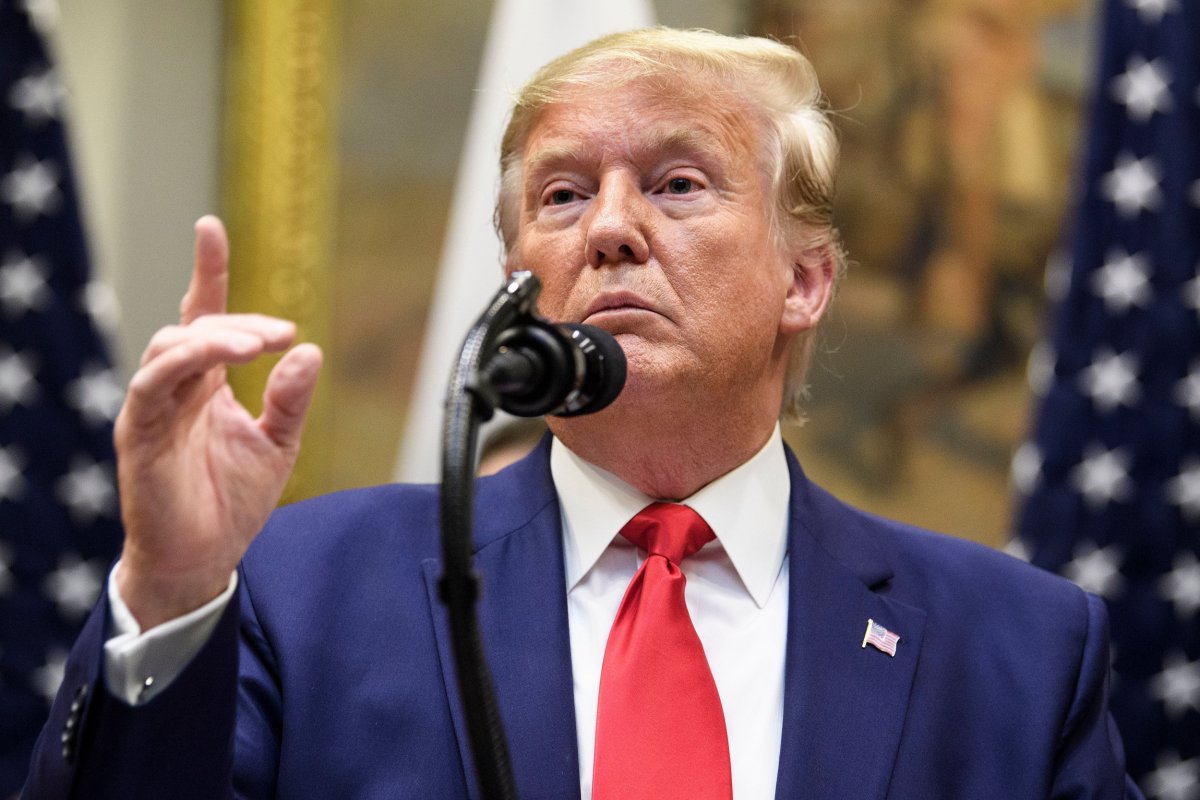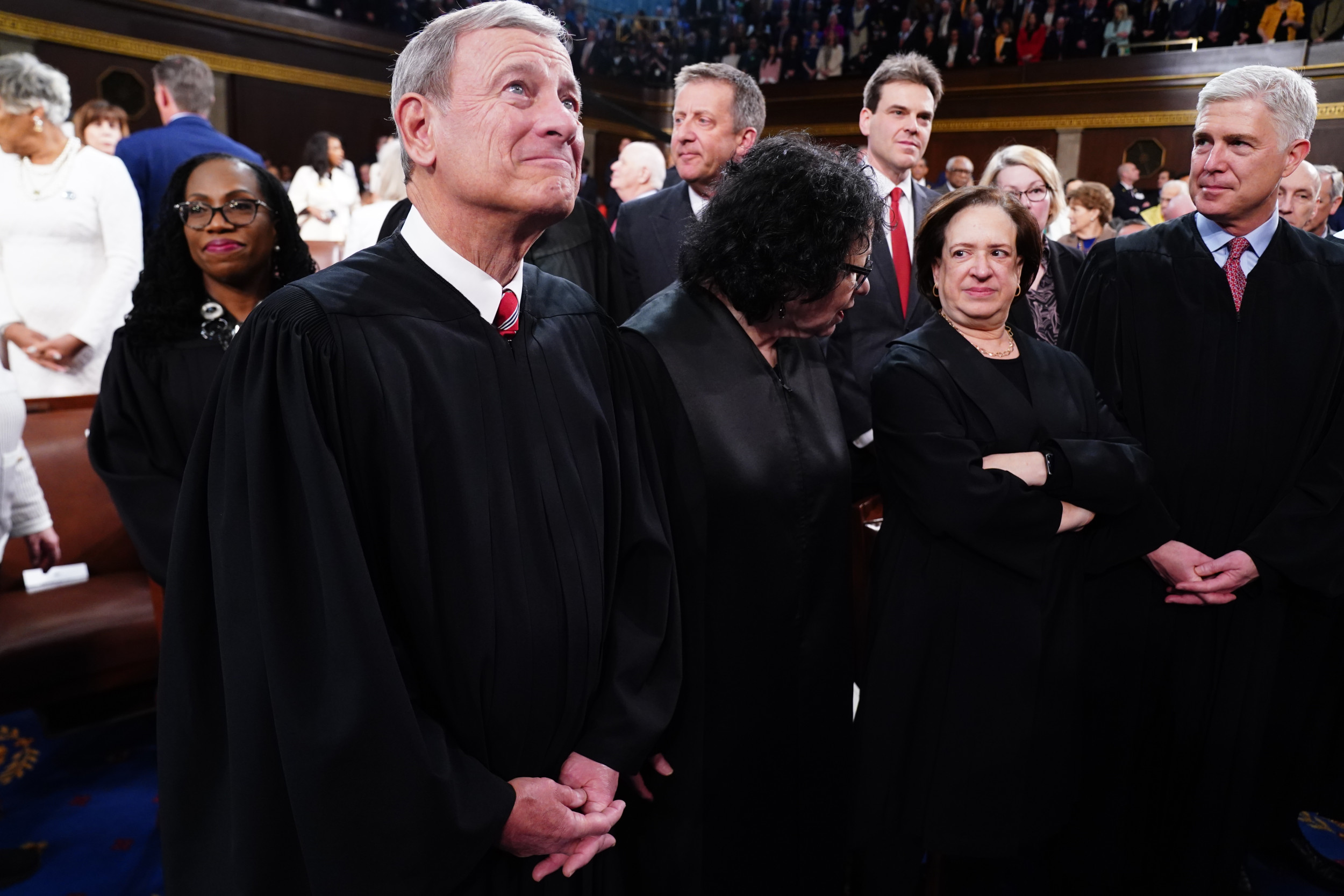🎙️ Voice is AI-generated. Inconsistencies may occur.
During the 2016 campaign, President Donald Trump made an aggressive promise on federal finances: He would eliminate the budget deficit within eight years. Now, three years into his presidency, the deficit is 68 percent higher than when he started.
Trump inherited a deficit of $585 billion when he took office in January 2017. That was 58 percent lower than the $1.4 trillion former President Barack Obama inherited in 2009 following the financial crisis, a number his administration slashed over two terms.
According to the latest Congressional Budget Office data released on Monday, the full-year deficit for 2019 is estimated to come in at $984 billion, just shy of the $1 trillion that many analysts were expecting. In 2018 the figure was $779 billion and in 2017 it was $665 billion.
"Relative to the size of the economy, the deficit—at an estimated 4.7 percent of gross domestic product (GDP)—was the highest since 2012, and 2019 was the fourth consecutive year in which the deficit increased as a percentage of GDP," the CBO said in its report.
"He's got no hope of eliminating the deficit," Danny Blanchflower, professor of economics at Dartmouth College and a former monetary policymaker at the Bank of England, told Newsweek. "The only possibility is for him to increase the deficit...This looks much like the policy on Syria: Uncoordinated chaos."
During the last election, Trump said he could clear America's $19 trillion of gross federal debt within eight years. To do that would mean eliminating the federal deficit, the negative difference between income and expenditure which keeps adding to the debt pile. It is now $22 trillion.
"We're not a rich country. We're a debtor nation...We've got to get rid of the $19 trillion in debt," Trump told The Washington Post in April 2016, several months before the election he would win. "I think I could do it fairly quickly...I would say over a period of eight years," Trump added, and suggested he would do so by renegotiating trade deals and creating trade surpluses.
Yet, since taking office, Trump's trade negotiations have provided little fruit for the economy and are instead hurting the pockets of American companies and consumers that are absorbing the financial burden of the tariffs.
After scrapping the North American Free Trade Agreement (NAFTA), the Trump administration agreed a new deal with Canada and Mexico called the United States–Mexico–Canada Agreement (USMCA), but it is yet to be ratified by Congress. Negotiations with China are ongoing as mutual tariffs impact hundreds of billions of dollars in goods trading between the two.
And talks also continue with the European Union as a similar tit-for-tat tariff war, a conflict opened by the Trump administration last year, rumbles on with no end in sight. It was initially over steel and aluminum imports but has now expanded to a range of products.
These trade wars are hurting America's manufacturing sector and weakening the domestic economy. But they are also clipping global growth, which is feeding back to further dampen U.S. GDP. There is talk among economists of a possible recession coming down the line.
Another major deficit issue is the Trump administration's $1 trillion package of tax cuts, which mostly benefited those with higher wealth and incomes, passed at the end of 2017. These tax cuts, the administration argued, would pay for themselves over time by fueling economic growth.
But the Trump administration's spending continues to significantly outpace its receipts, widening the deficit and adding more money to the federal debt pile despite the president's claim that he could clear it.
"I think the reality was that this was ideology over economics," Blanchflower told Newsweek. "I've always argued you needed stimulus, but the time they did it was wrong, how they did it was wrong, and surprise surprise this is what you get.
"A trillion-dollar deficit at the point at which the U.S. economy is clearly slowing and may well be entering recession as the rest of the world is."
The White House and the Office of Management and Budget did not respond immediately to Newsweek's request for comment.

This article was updated with comments by Danny Blanchflower.
Correction 12/13/19, 8.50 a.m.: This article was updated to correct the name of the Office of Management and Budget.
About the writer
Shane Croucher is a Breaking News Editor based in London, UK. He has previously overseen the My Turn, Fact Check ... Read more



